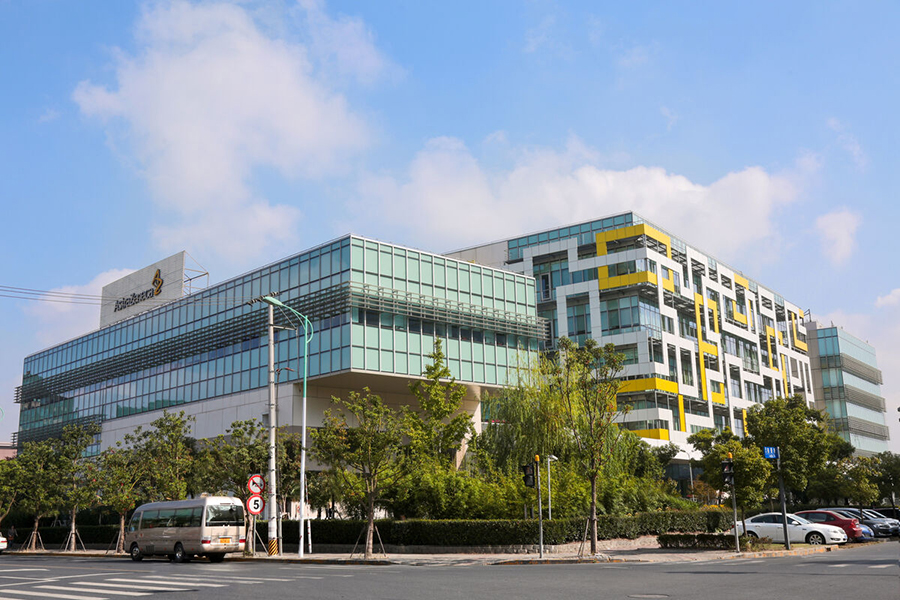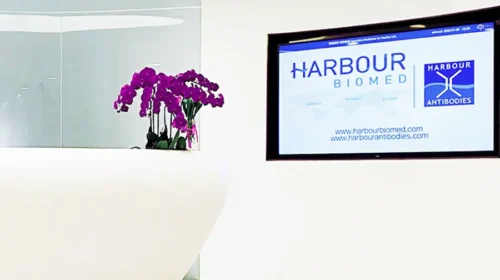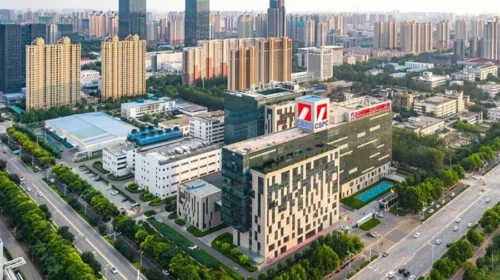AstraZeneca could face limited fallout from Chinese tax probe

The drugs giant and one of its top executives are being investigated over business tactics in China, but a potential fine for one alleged offence would not break the bank
Key Takeaways:
- AstraZeneca said it was facing prosecution on charges of illegally importing drugs into mainland China with a fine of up to $4.5 million
- The update on the case was contained in an earnings release that showed Chinese revenues rising 11% last year, accounting for 12% of the firm’s total income
By Molly Wen
Drugs giant AstraZeneca Plc (AZN.US) has turned in a strong annual profit performance and broken new records for China sales, but what really stood out for investors was a small paragraph in the middle of the earnings statement.
Tucked away under the headline figures and forward guidance in last week’s earnings report was a brief update about a Chinese investigation into AstraZeneca that has been weighing on investors’ minds.
The multinational had been notified that it could face a fine of up to $4.5 million over allegations that some of its drugs were smuggled from Hong Kong into mainland China, evading $900,000 in import duties. The company said it was fully cooperating with the Chinese authorities and did not name any staff implicated in the inquiry.
However, the case could be part of an investigation into sales practices involving AstraZeneca’s former head of China operations, who has slipped out of the public eye since being detained for questioning last year in a case that triggered a tumble in the drugmaker’s share price.
At the time, shareholders were spooked by the risk that AstraZeneca could become mired in a messy and costly scandal, a decade after China slapped a record fine on drugmaker GSK for bribery charges.
In its latest statement, AstraZeneca said it was informed by Shenzhen authorities in January that it faced a fine of up to five times the value of unpaid import duties. It named the products in question as Imfinzi and Imjudo, used in combination to treat liver and lung cancers. One of the drugs has been approved in Hong Kong but had not gained clearance for sale in mainland China.
The update in the earnings statement chimes with AstraZeneca’s disclosure at a meeting with investors last November that some employees were suspected of smuggling certain cancer drugs from Hong Kong to the mainland.
Reassured by a relatively minor fine
A $4.5 million maximum penalty for the offence, if AstraZeneca is found to be liable, would be a small slap on the wrist for a company that makes more than $7 billion a year in net profit, although it was not clear whether any ongoing investigations could deliver a bigger financial or reputational blow in the future.
Cheered by hopes that the company’s core business could be spared serious damage, investors pushed the stock higher. On the first trading day after the financial statement, AstraZeneca’s stock price surged 4.5% at the open and closed with a gain of 2.01%.
Let’s turn the clock back three months. In late October, a bombshell dropped on the company’s official website in the form of a statement saying that its China president Leon Wang, also known as Wang Lei, had been detained for questioning. The stock price rapidly sank into a downward spiral, falling 14% over seven trading days. The dive wiped $30 billion off the company’s market value, costing AstraZeneca its status as the biggest British-based corporation by market cap.
Under Wang’s stewardship, China had become the company’s second biggest market after the United States. He was promoted to global executive vice president in 2017 in charge of Asia-Pacific strategy, becoming a well-known figure in the pharmaceutical industry and a role model for Chinese executives rising up the multinational ranks. In his ascent, he gained a reputation for instilling a “wolf-like” culture that may have encouraged aggressive sales tactics. Since 2021, a number of AstraZeneca employees have been accused or convicted of using manipulated test data to defraud China’s state medical insurance fund.
Meanwhile, profits mount
Despite the management scandal, profits keep rolling in. Global revenue rose 21% in 2024 from the previous year to $54.1 billion and net profit jumped 29% to $7.04 billion. In the Chinese market turnover rose 11% to $6.41 billion, reaching a record 12% of total revenue. The company also reclaimed the top spot for multinational pharmaceutical revenue in China, displacing Merck & Co.
AstraZeneca said it remained committed to doing business in China and was confident about deepening its presence in the market. In November 2024, nine of its drugs and indications were included in the latest catalogue for the state medical insurance scheme. Eight new AstraZeneca drugs and indications were approved in China in 2024 as a whole, with three more conditions added in January. Last year the company announced the launch of a new factory in Wuxi to manufacture small-molecule drugs.
Currently, the company is trading at a price-to-earnings (P/E) ratio of 32 times, much higher than the 13 times for Merck & Co. (MRK.US), which reported an equally strong performance in China. But AstraZeneca has a long way to go to catch up with the 75 times for Eli Lilly and Company (LLY.US), which is banking big profits from weight-loss drugs.
Last December the company appointed a veteran AstraZeneca executive to the position vacated by Wang, who was described as being on extended leave while under investigation in China. The new holder of the post, Iskra Reic, is responsible for international strategy and operations outside of Europe, including China.
Formerly in charge of AstraZeneca’s vaccines business, Reic has been at the company for more than 20 years, serving as head of European and Canadian operations since 2017.
While well-versed in international business, she does not bring deep experience of the Chinese market to the role. Investors will be keeping an eye on whether the Anglo-Swedish conglomerate can effectively navigate the complexities of operating in China to maintain the growth record it achieved under Wang’s leadership.
To subscribe to Bamboo Works free weekly newsletter, click here






